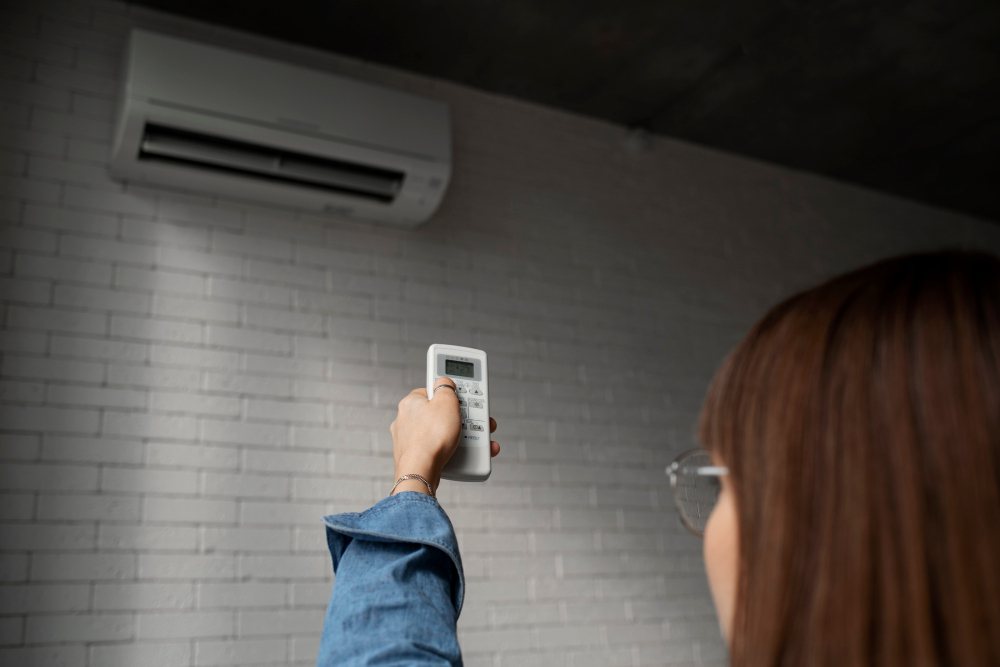Air conditioners are an essential part of homes. Having said that, they can be split into two types – inverter and regular ACs. Inverter and regular ACs have their pros and cons. The differences are briefly discussed in this post with inverter and regular AC service charges, efficiency, maintenance, and more.
Inverter Based ACs
Before we compare the two types of air conditioners, let’s first understand what they mean.
In simple terms, Inverter ACs have a variable-speed compressor that adjusts its speed to regulate the temperature in a room. This means the compressor doesn’t have to constantly switch on and off, which can consume much energy. Instead, it runs at a lower speed, resulting in better energy efficiency and consistent temperature control.
Regular Air Conditioners
On the other hand, regular air conditioners operate on a fixed-speed compressor that turns on and off to maintain a specific temperature setting. This means the compressor runs at full speed until the desired temperature is reached and then shuts off. However, as the room temperature rises again, the compressor will turn on at full speed again, resulting in frequent starts and stops, which can use up a considerable amount of energy.

The Difference
Efficiency Comparison
Now, let’s compare the efficiency between Inverter ACs and Regular Air Conditioners. Inverter ACs operate at a variable speed, which saves energy by running consistently at a lower speed rather than switching on and off frequently like regular air conditioners. This results in an impressive 30-50% reduction in energy consumption, making it the more energy-efficient option.
Temperature Control
When it comes to temperature control, Inverter ACs reign supreme. As mentioned earlier, the variable-speed compressor in these ACs can adjust its speed to regulate the temperature in a room more accurately and efficiently. On the other hand, regular air conditioners operate on a simple ON/OFF functionality, which can lead to fluctuations in room temperature.
Noise Levels
One aspect that often gets overlooked when choosing an air conditioner is the noise level. Inverter ACs are known to be quieter, thanks to their variable-speed compressor that runs at a lower speed and produces less noise compared to regular air conditioners with their constant starting and stopping.
Longevity
While Inverter ACs tend to be more expensive upfront, they are typically more cost-effective in the long run due to their energy savings. Plus, as they don’t frequently start and stop, this reduces wear and tear on the system, potentially adding to its longevity. On the flip side, Regular Air Conditioners are usually cheaper at the point of purchase but may result in higher energy bills over time and require more frequent repairs due to the frequent starts and stops.
Service Cost
When it comes to AC repair service or its installation costs, Inverter Based ACs may be slightly more expensive due to the advanced technology involved. However, the energy savings you will see over time offset this cost. Regular Air Conditioners may have lower service costs, but frequent starts and stops can increase energy bills.
Eco-Friendliness
In an era where environmental concerns are increasingly significant, choosing an air conditioner may impact your carbon footprint. Inverter ACs consume less power and, therefore, emit fewer greenhouse gases compared to Regular Air Conditioners. If you’re environmentally conscious and wish to reduce your carbon footprint, an Inverter AC might be your better option.
Maintenance
Maintenance requirements are another factor to consider. Inverter ACs typically require fewer repairs due to less wear and tear on the compressor, reducing maintenance costs over time. However, when they do need repairs, it could be more expensive due to the complex technology involved. Regular Air Conditioners, while potentially requiring more frequent maintenance due to the on-off cycling, generally have less complex components and may be cheaper and easier to repair.
Which type of AC should you buy?
The answer to this question ultimately depends on your individual needs and preferences.
If you prioritize energy efficiency, consistent temperature control, and environmental friendliness, then an Inverter AC might be the better choice for you.
However, if upfront cost and easier maintenance are more important factors for you, then a Regular Air Conditioner could be the right option.
Top 7 Types of Inverter Air Conditioners for 2024
1) Split Inverter Air Conditioner: The most common type of inverter air conditioner, it consists of an indoor and outdoor unit connected by a conduit.
2) Window Inverter Air Conditioner: Installed in a window frame, this type is ideal for small rooms or spaces.
3) Portable Inverter Air Conditioner: As the name suggests, this type can be easily moved and is suitable for temporary cooling.
4) Cassette Inverter Air Conditioner: This type is mounted on the ceiling and distributes cool air evenly in all directions.
5) Ducted Inverter Air Conditioner: With a duct system, this type can cool multiple rooms or areas using one unit.
6) Multi-Split Inverter Air Conditioner: Ideal for cooling multiple rooms, this type can connect up to five indoor units to one outdoor unit.
7) Solar Inverter Air Conditioner: This environmentally-friendly option uses solar power to run the air conditioner, reducing energy consumption and costs.
No matter which type of inverter air conditioner you choose, it’s important to consider your specific needs and budget. With technological advancements, inverter air conditioners are becoming increasingly popular due to their energy efficiency and other benefits. As the market continues to grow, we’ll see even more innovative types of inverter air conditioners in the future.
Also, no matter which AC you purchase, MileHi HVAC can help run the air conditioners smoothly throughout the year. Check out our AC repair, installation, and maintenance service today.

